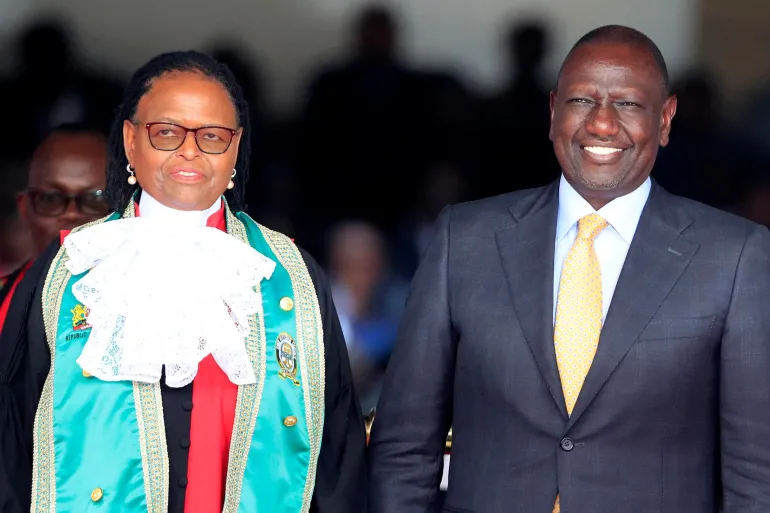The once-promising relationship between President William Ruto and the Judiciary is losing its shine. The initial enthusiasm has faded, and now the real challenges are surfacing between the Executive and the courts.
As tensions rise between these two branches, the pressing question is who will yield first: the Executive, holding the power, or the Judiciary, armed with authority.
Reports from State House reveal that President Ruto has received intelligence suggesting that certain judges were allegedly influenced by senior officials in the previous administration to stall projects close to the President’s priorities.
Multiple sources within State House and the Interior Ministry indicate that a high-ranking official in the previous government benefited from funds linked to the National Health Insurance Fund (NHIF). This individual was reportedly keen on preventing the implementation of the Social Health Insurance Fund.
A senior official at State House, speaking anonymously, expressed the President’s discontent with the situation. According to them, the President is resolute in addressing these concerns about judicial interference with his initiatives and intends to tackle what he perceives as misconduct among the judges.
In his recent New Year address, President Ruto openly criticized the Judiciary for impeding his flagship projects. He emphasized the importance of ensuring that decisions made by public servants align with the well-being of the people they serve.
Expressing his frustration, he highlighted instances where decisions by individuals benefiting from certain privileges hindered programs meant to benefit millions. He cited examples like decisions affecting housing programs and youth employment opportunities.
Reportedly, Ruto aims to expose and address judicial misconduct by engaging the Judicial Service Commission (JSC) to rectify issues within the Judiciary.
During his inauguration in September 2022, Ruto promised the Judiciary its rightful place in his presidency and substantiated this by appointing six judges, fulfilling a pledge made during his campaign. These judges had been embroiled in a conflict between former President Uhuru Kenyatta and the Judiciary.
Political analyst Javas Bigambo views the ongoing public discourse as pivotal for the country, potentially leading to reforms within the Judiciary. He stresses the need for a balanced debate to address the challenges within the Judiciary, akin to past government branches facing scrutiny.
The Judiciary has notably made decisions that counter some of Ruto's propositions. For instance, the High Court deemed the 1.5% housing levy unconstitutional, disrupting Ruto’s plan to erect 200,000 housing units annually.
Ruto’s allies, including UDA secretary general Cleophas Malala, Kiambu senator Karungo wa Thang’wa, and Marakwet West MP Timothy Toroitich, have openly criticized the Judiciary, suggesting measures to handle what they perceive as ‘uncooperative judges.’
Malala emphasized that anyone obstructing the Kenya Kwanza projects must be held accountable for hindering progress. He applauded President Ruto for honoring promises made to independent offices and ensuring adequate financial support for their effective functioning, particularly in combating corruption.

